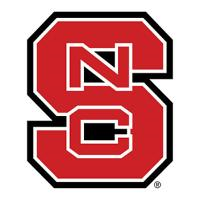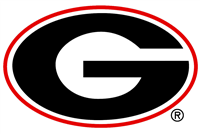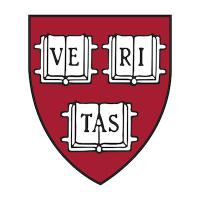What do they do?
Plan and design land areas for projects such as parks and other recreational facilities, airports, highways, hospitals, schools, land subdivisions, and commercial, industrial, and residential sites.
Also known as:
AP BD+C (Accredited Professional in Building Design and Construction), Architect, Golf Course Architect, Land Planner, Landscape Architect, Landscape Designer, Landscape Planner, Park Planner, Planner, Professional Landscape Architect (PLA)
-
-1.6%
Change
Ranks #45 in job growth rate40Job Openings
Ranks #26 in net job growth
-
North Carolina State University at Raleigh
Raleigh, NC
-
University of Virginia-Main Campus
Charlottesville, VA
-
Clemson University
Clemson, SC
-
University of Georgia
Athens, GA
-
Harvard University
Cambridge, MA
Looking for colleges that offer a specific major? Use the College Match Tool to find your best-matched schools and discover your estimated Net Price!
- Doctorate or Professional Degree (3%)
- Master's degree (22%)
- Bachelor's degree (59%)
- Associate's degree (3%)
- Some college, no degree (5%)
- High school diploma equivalent (5%)
- Less than high school diploma (2%)
People in this career often have these skills:
- Reading Comprehension - Understanding written sentences and paragraphs in work-related documents.
- Active Listening - Giving full attention to what other people are saying, taking time to understand the points being made, asking questions as appropriate, and not interrupting at inappropriate times.
- Speaking - Talking to others to convey information effectively.
- Critical Thinking - Using logic and reasoning to identify the strengths and weaknesses of alternative solutions, conclusions, or approaches to problems.
- Coordination - Adjusting actions in relation to others' actions.
- Complex Problem Solving - Identifying complex problems and reviewing related information to develop and evaluate options and implement solutions.
- Writing - Communicating effectively in writing as appropriate for the needs of the audience.
- Active Learning - Understanding the implications of new information for both current and future problem-solving and decision-making.
- Social Perceptiveness - Being aware of others' reactions and understanding why they react as they do.
- Judgment and Decision Making - Considering the relative costs and benefits of potential actions to choose the most appropriate one.
- Time Management - Managing one's own time and the time of others.
- Operations Analysis - Analyzing needs and product requirements to create a design.
- Systems Analysis - Determining how a system should work and how changes in conditions, operations, and the environment will affect outcomes.
People in this career often know a lot about:
- Design - Knowledge of design techniques, tools, and principles involved in production of precision technical plans, blueprints, drawings, and models.
- Building and Construction - Knowledge of materials, methods, and the tools involved in the construction or repair of houses, buildings, or other structures such as highways and roads.
- Public Safety and Security - Knowledge of relevant equipment, policies, procedures, and strategies to promote effective local, state, or national security operations for the protection of people, data, property, and institutions.
- English Language - Knowledge of the structure and content of the English language including the meaning and spelling of words, rules of composition, and grammar.
- Engineering and Technology - Knowledge of the practical application of engineering science and technology. This includes applying principles, techniques, procedures, and equipment to the design and production of various goods and services.
- Customer and Personal Service - Knowledge of principles and processes for providing customer and personal services. This includes customer needs assessment, meeting quality standards for services, and evaluation of customer satisfaction.
- Law and Government - Knowledge of laws, legal codes, court procedures, precedents, government regulations, executive orders, agency rules, and the democratic political process.
- Computers and Electronics - Knowledge of circuit boards, processors, chips, electronic equipment, and computer hardware and software, including applications and programming.
- Administration and Management - Knowledge of business and management principles involved in strategic planning, resource allocation, human resources modeling, leadership technique, production methods, and coordination of people and resources.
- Mathematics - Knowledge of arithmetic, algebra, geometry, calculus, statistics, and their applications.
- Geography - Knowledge of principles and methods for describing the features of land, sea, and air masses, including their physical characteristics, locations, interrelationships, and distribution of plant, animal, and human life.
People in this career often have talent in:
- Oral Comprehension - The ability to listen to and understand information and ideas presented through spoken words and sentences.
- Written Comprehension - The ability to read and understand information and ideas presented in writing.
- Oral Expression - The ability to communicate information and ideas in speaking so others will understand.
- Visualization - The ability to imagine how something will look after it is moved around or when its parts are moved or rearranged.
- Originality - The ability to come up with unusual or clever ideas about a given topic or situation, or to develop creative ways to solve a problem.
- Problem Sensitivity - The ability to tell when something is wrong or is likely to go wrong. It does not involve solving the problem, only recognizing that there is a problem.
- Deductive Reasoning - The ability to apply general rules to specific problems to produce answers that make sense.
- Inductive Reasoning - The ability to combine pieces of information to form general rules or conclusions (includes finding a relationship among seemingly unrelated events).
- Category Flexibility - The ability to generate or use different sets of rules for combining or grouping things in different ways.
- Written Expression - The ability to communicate information and ideas in writing so others will understand.
- Fluency of Ideas - The ability to come up with a number of ideas about a topic (the number of ideas is important, not their quality, correctness, or creativity).
- Information Ordering - The ability to arrange things or actions in a certain order or pattern according to a specific rule or set of rules (e.g., patterns of numbers, letters, words, pictures, mathematical operations).
- Near Vision - The ability to see details at close range (within a few feet of the observer).
- Speech Recognition - The ability to identify and understand the speech of another person.
- Speech Clarity - The ability to speak clearly so others can understand you.
People in this career often do these activities:
- Create graphical representations of structures or landscapes.
- Discuss designs or plans with clients.
- Incorporate green features into the design of structures or facilities.
- Inspect facilities or sites to determine if they meet specifications or standards.
- Analyze physical, survey, or geographic data.
- Perform marketing activities.
- Supervise engineering or other technical personnel.
- Explain project details to the general public.
- Create maps.
- Prepare detailed work plans.
- Confer with technical personnel to prepare designs or operational plans.
- Design water conservation systems.
- Update technical knowledge.
- Advise customers on the use of products or services.
- Select project materials.
This page includes data from:

 Occupation statistics: USDOL U.S. Bureau of Labor Statistics Occupational Employment Statistics
Occupation statistics: USDOL U.S. Bureau of Labor Statistics Occupational Employment Statistics









